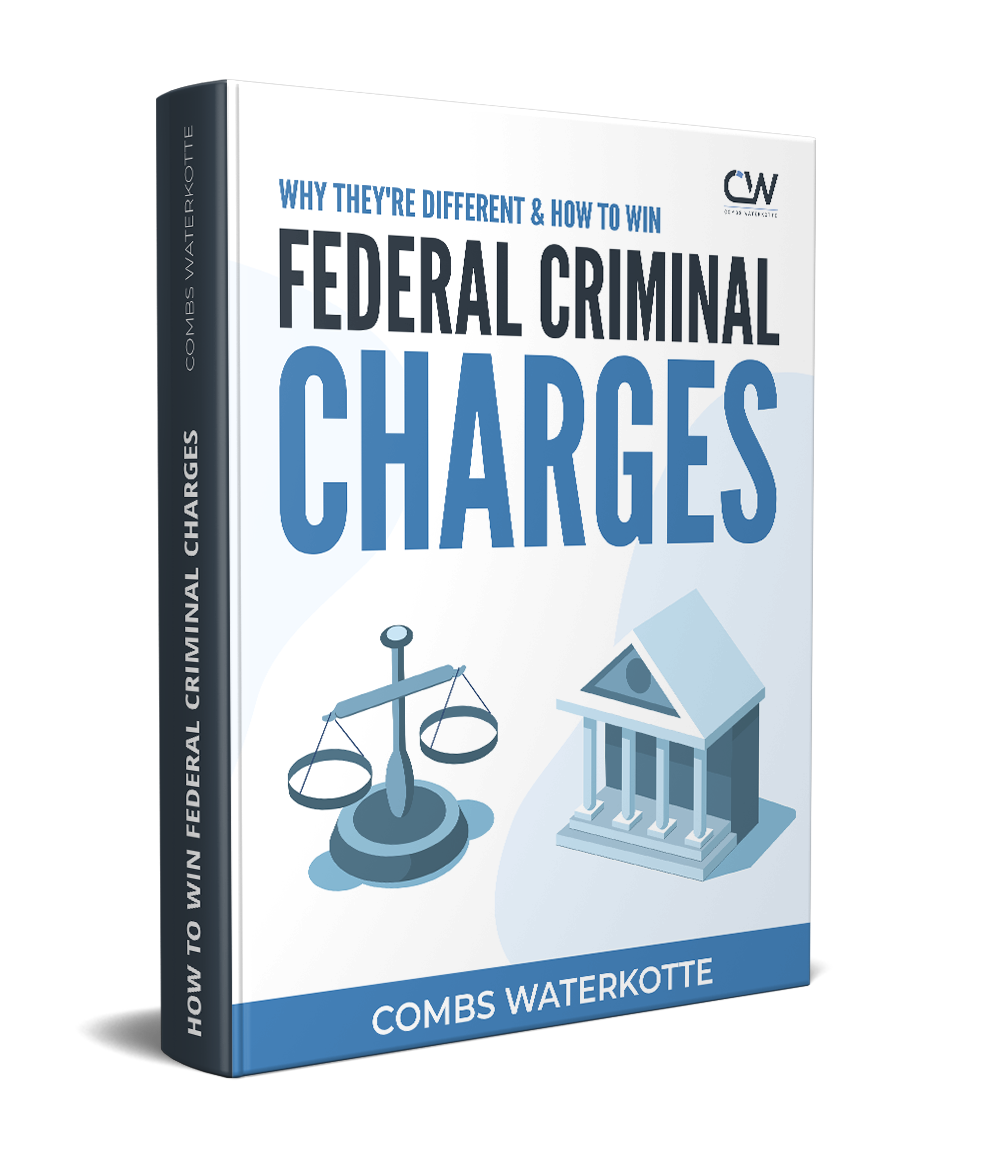When you’re facing federal charges, the government’s advantage is clear: they’ve had time to investigate, coordinate, and prepare before you even knew you were a target. The key to evening the odds, and tipping the scales in your favor, is a federal defense strategy that’s proactive, precise, and relentlessly focused on your best possible outcome.
This chapter breaks down the core elements of building a winning federal defense, from the first consultation with your attorney to the final steps in court.
Step 1: Hire the Right Defense Team
A single lawyer you find on a bus stop ad can’t match the resources of the federal government. No, you need a team of skilled federal criminal defense attorneys. The most effective defenses often rely on a coordinated team that includes:
- Lead Defense Attorney(s): An experienced federal criminal lawyer who knows the system inside and out.
- Investigators: Professionals with a bevy of resources who can locate witnesses, uncover exculpator evidence, and challenge the prosecution’s narrative.
- Expert Witnesses: Specialists in forensics, accounting, digital security, medicine, or other relevant fields who can testify on your behalf.
- Paralegals & Support Staff: The behind-the-scenes force ensuring every filing, motion, and piece of evidence is handled efficiently.
The sooner this team is hired and assembled, the sooner they can get to work countering the government’s head start.
Step 2: Master the Case Facts & Evidence
Winning in federal court requires knowing the case better than the prosecution does. This means:
- Conducting a complete review of all discovery provided by the U.S. Attorney’s Office
- Looking for chain-of-custody problems in physical evidence
- Filing motions for additional evidence or to compel disclosure of withheld material
- Identifying constitutional violations such as unlawful searches or Miranda rights breaches
This phase is not just about reacting, it’s about finding the cracks in the government’s case and widening them.
Step 3: Challenge the Government Early & Often
Federal prosecutors and investigators aren’t infallible. Strategic pretrial motions can weaken their case before it ever gets to a jury:
- Motions in Limine — Preventing prejudicial or irrelevant evidence from being presented at trial.
- Motions to Dismiss Charges — If the evidence is insufficient or the indictment is flawed, charges can sometimes be thrown out entirely.
- Motions to Suppress Evidence — Excluding illegally obtained material can gut the prosecution’s argument.
Early victories in these motions can change the trajectory of the case.
Step 4: Build a Narrative that Resonates
Jurors and judges respond to stories, not just facts. A winning federal criminal defense team frames the case in a way that:
- Shows reasonable doubt in the prosecution’s version of events
- Offers credible alternative explanations for key facts
- Demonstrates government overreach when applicable
- Highlights your character, background, and motivations
Your federal defense strategy isn’t simply about disproving their claims—it’s about presenting a compelling reason why justice means “Not Guilty” verdict.
Step 5: Prepare for Multiple Outcomes
While acquittal is always the goal, smart federal criminal defense teams plan for every possibility:
- Negotiated Resolutions — In certain cases, a well-negotiated plea deal can avoid the harshest penalties.
- Trial Strategy — When negotiations don’t provide the best possible outcome, your case goes to trial. Here, every witness, exhibit, and cross-examination is rehearsed and refined.
- Sentencing Mitigation — If a conviction occurs, presenting mitigating factors can significantly reduce prison time.
Planning for contingencies isn’t pessimism—it’s professionalism.
Step 6: Maintain Client Involvement & Control
A federal defense strategy works best when you’re part of it. That means:
- Providing your a href=”https://www.combswaterkotte.com/why-choose-combs-waterkotte/”>federal criminal defense team with complete, truthful information to work with
- Staying informed on case progress
- Reviewing & approving key decisions
The more invested you are in your defense, and by choosing a federal criminal defense team that keeps you at the forefront, the stronger it becomes.
Key Takeaway: Beating a federal case isn’t about reacting—it’s about taking control from the start. The government’s head start can be matched, and even overcome, with a proactive defense strategy that’s built by the right federal defense team, grounded in deep investigation, and executed with precision at every stage. From challenging evidence early to crafting a compelling narrative for trial, success in federal court comes from preparation, coordination, and relentless advocacy—long before the jury ever hears your name.
How Building a Winning Defense Strategy Helps Your Federal Case
In federal court, a winning defense is never improvised—it’s built with intention, precision, and relentless focus from day one. With the right defense team, the right strategy, and the right preparation, you can challenge the government’s case, protect your rights, and fight for your future.
In the next chapter, we’ll break down common federal defense strategies and how they work, examining real-world tactics used in cases like yours.



